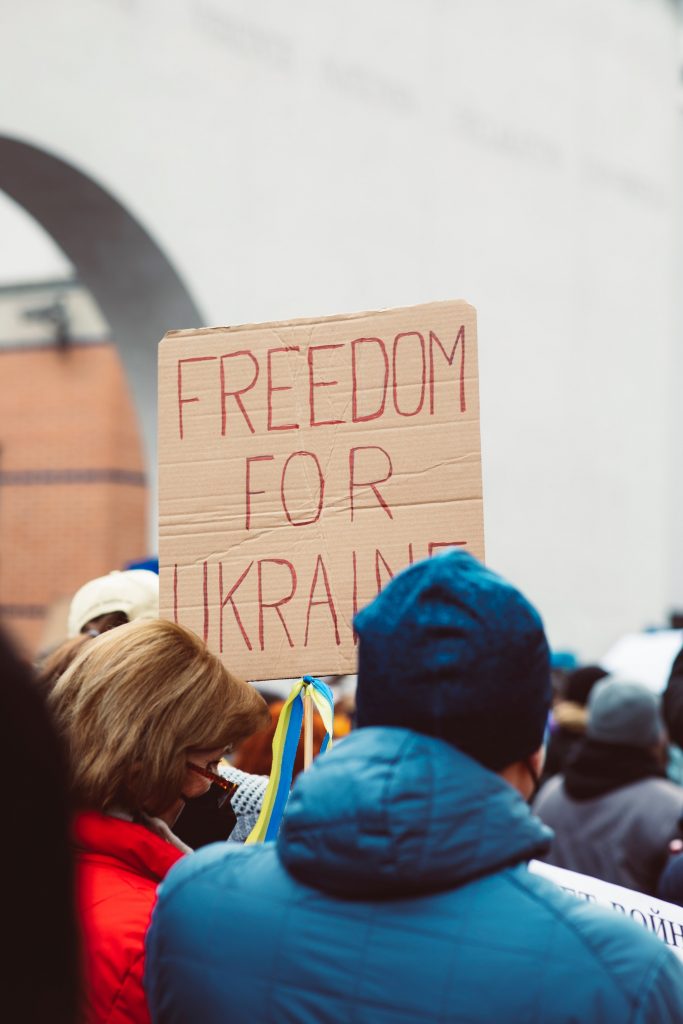News
Ukraine war: how Russian denial of civilian casualties follows tactics used in Syria

US president Joe Biden has labelled Russian president Vladimir Putin a “war criminal” for the way the war in Ukraine is being carried out.
Experts collating the numbers of casualties in Ukraine report that Russia is failing to acknowledge it has killed civilians in its military action, just as it did in Syria, where Russia began its military engagement in support of the Assad government in 2015 with intense airstrikes and artillery actions.
Russian officials and state media claim they are only attacking military sites. To date, Russia has not publicly accepted responsibility for a single civilian death in Ukraine.
Biden’s comment came after Russian forces had bombed a maternity and children’s hospital in southern Ukraine, injuring at least 17 people in the attack.
At least 13 people were killed in a Russian attack on an industrial bakery in Makariv, west of Kyiv, and it was estimated by the UN’s Office of the High Commissioner for Human Rights (OHCHR) that two weeks into the Russian invasion at least 549 Ukrainian civilians had been killed, 41 of them children, rising to 780 killed (722 adults and 58 children) by March 17.
According to Kharkiv regional police, between February 24, when the invasion began, and March 7, 133 civilians were killed, five of them children. An attack documented by Human Rights Watch included the case of a man who was killed as he waited in line outside a supermarket.
But the OHCHR believes that the overall figures of civilian deaths are considerably higher than local estimates. This is because individual civilian reports from locations where intense hostilities have been going on has been delayed and many reports are still awaiting corroboration.
The office of the Ukrainian president, Volodymyr Zelensky, claims 1,500 residential buildings, 202 schools and 34 hospitals have been shelled across the country.
Ukraine’s defence ministry has said that Russia has lost 14,200 military personnel, while Ukrainian forces destroyed 450 Russian tanks, 1,448 armoured vehicles, 93 planes, 112 helicopters and 12 drones. Russia’s defence ministry reported the death toll only once, on March 2, saying that 498 Russian servicemen had been killed in Ukraine.
Comparisons with Syria
Russian military action caused civilian deaths or injuries in 4,615 incidents in Syria, according to Airwars, a collaborative, not-for-profit transparency organisation. It has been tracking military actions and related civilian harm claims in conflict zones such as Iraq, Syria and Libya since 2014, drawing on media, social media and NGO reports.
This brings Airwars’ total estimate since 2015 to a minimum of 14,216 civilians killed. Overall, Russia has been linked by other sources to as many as 23,400 civilian deaths and 41,000 injuries in Syria.
But the Russian military’s own estimate of civilian deaths and injuries in Syria stands at zero. Russian actions in Syria suggest its military does little to to try to avoid harming civilians, and this appears to also be the case in Ukraine. In a report dated February 18, 2022, Human Rights Watch raised concerns about the shelling of residential areas in Ukraine by Russian-backed groups, a tactic Russia has been repeatedly accused of pursuing in Syria.
At the same time Russian state television is describing videos of missiles striking Ukrainian cities and reports of Russian soldiers killed in action as “fakes”, as the country’s media try to account for information emerging from Ukraine that contradict official reports of the invasion.
While claims surrounding military deaths support narratives of winning or losing a war, with each side maintaining their enemy is suffering greater losses, combatant deaths are less problematic than civilian ones, because combatants are legitimate targets, whereas non-combatants are “protected persons”, according to international law.
Collateral damage?
Russia is not the first country to be accused of under-reporting civilian casualties. It was a feature of “the war on terror”. In 2002 General Tommy Franks made a statement that the US “don’t do body counts”, admitting to the significant undercounting of civilian deaths by the US-led coalition in the campaign against ISIS since 2014. In the west, civilian deaths are often referred to as “collateral damage” and are always “regrettable”.
In May 2019, the US Department of Defense released a report to account for civilian casualties of US military activities in 2018: 120 deaths and 65 injuries in Iraq, Syria, Afghanistan, and Somalia. It also acknowledged 793 civilian deaths in Iraq and Syria as a result of US and coalition military activities in 2017. While certainly an undercount – Iraq Body Count, an organisation which has been tallying deaths form the conflict in Iraq, and Airwars estimate these numbers to be in the tens of thousands – there is at least some attempt to accept responsibility for harms inflicted.
Sergei Lavrov, Russia’s foreign minister, recently declared that Russia did not “invent collateral damage” with Ukraine:
I’m not justifying any actions that lead to deaths of civilians, but it wasn’t us who invented this collateral damage. This was invented by our western partners from their adventures in Iraq, in Libya and so on.
It may be the closest Russia ever comes to admitting some degree of civilian harm in the wars it fights.
But, denials, explanations and justifications aside, the deaths of children like Alisa (7) Polina (10) and her brother Semyon (5) killed in bombings and shootings show that when a state invades, no one is safe.
Lily Hamourtziadou, Senior Lecturer in Security Studies, Birmingham City University
This article is republished from The Conversation under a Creative Commons license. Read the original article.





















